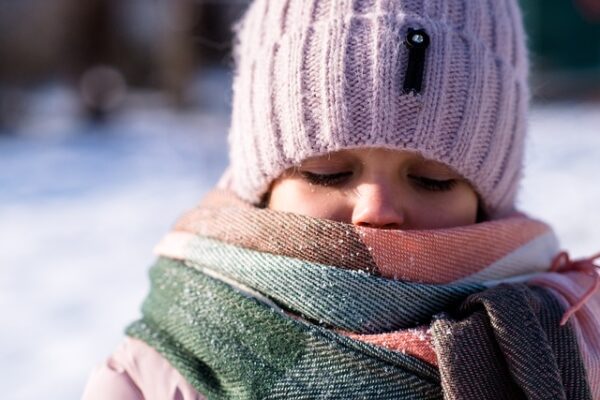viral infections
Why Are People More Likely to Get Sick During Cold Weather?
On average, adults catch the common cold 2-3 times a year, and the risk of getting sick during colder weather tends to rise in the winter months. Spending more time indoors leads to close contact with others, facilitating the spread of viruses. Research also highlights other factors contributing to increased illness as temperatures drop. The likelihood of falling ill during chilly weather or contracting viruses in frigid conditions also increases, as the cold environment impacts both our immune defenses and the stability of viruses. This increased vulnerability during the winter months can result in a higher chance of catching a cold or flu. Additionally, the cold, brisk air can dry out nasal passages, making it easier for viruses to enter the body and cause infections.
Factors Contributing to Illness in Colder Weather
- Weakened Immune System: Reduced daylight and lower vitamin D levels can weaken the immune system, increasing the likelihood of getting sick during colder weather.
- Dry Air: Cold, dry air can dry out mucous membranes, making it easier for viruses to enter the body and lead to illnesses.
- Viral Survival: Many viruses thrive in colder, drier conditions, making them more stable and easier to spread, which increases the risk of getting sick during colder weather.
- Behavioral Changes: Less exercise and poorer diet can weaken the immune system, while indoor crowding increases germ spread, further contributing to the risk of illness in colder weather.
Tips to Reduce Risk
- Stay Hydrated: Keep mucous membranes moist to reduce the risk of getting sick during colder weather.
- Eat a Healthy Diet: Support your immune system with a balanced diet to better defend against illnesses.
- Get Adequate Sleep: Ensure sufficient rest to help your body recover and reduce the risk of getting sick.
- Exercise Regularly: Boost your immune system with moderate exercise to help prevent illness.
- Practice Good Hygiene: Wash hands, avoid touching your face, and disinfect surfaces to prevent the spread of germs.
- Dress Warmly: Protect your body from cold stress and reduce the chances of getting sick.
- Use a Humidifier: Add moisture to indoor air to prevent mucous membranes from drying out and lower the risk of illness.
How do viral infections cause illness?
What happens when a virus enters the nose?
Understanding Nasal Defense Against Viruses
To understand what happens when a virus enters the nose, we turn to a 2018 study by scientists from Massachusetts Eye and Ear University. The research revealed that when nasal cells detect bacteria, they release billions of tiny fluid-filled sacs known as extracellular vesicles (EVs). These EVs move into the mucus, surrounding and attacking the bacteria before it can infect cells. This response is particularly important for understanding how getting sick during colder weather can impact the effectiveness of this defense mechanism.
Study on Viruses
Intrigued by these findings, the team extended their research to see if the same response occurs with viruses, particularly those causing common upper respiratory infections. Their study, which tested three common cold viruses, found that EVs responded similarly to viruses as they did to bacteria. The EVs surrounded and attacked the virus particles in the mucus, containing molecules that kill the viruses. This means that EVs help prevent viruses from binding to nasal cells and initiating infection.
Managing Sleep Difficulties
For those facing sleep difficulties during cold and flu season, UK sleeping pills might provide some relief. Consult a healthcare provider for
Lorem ipsum dolor sit amet...
Identifying Cold Symptoms and Assessing Your Risk of Infection
Unlike other viruses, cold-related symptoms typically affect only one area: the nose. The most common signs of a cold include:
– Stuffy and runny nose
– Sneezing
– Postnasal drip, which can also lead to a sore throat and cough
In addition to these localized symptoms, some people may experience systemic effects such as a mild fever or general fatigue.
While no one is completely immune to cold or flu germs, certain groups are more vulnerable and may face more severe symptoms or complications. These groups include:
– Young children, whose immune systems are still developing
– People living or working in densely populated areas
– Individuals with weakened immune systems
– Cancer patients
– Those who have undergone organ transplants
Strengthen Your Immune System and Safeguard Your Health
Boosting Nasal Defenses with Vitamin C
Several allergists and immunologists recommend increasing your vitamin C intake to strengthen nasal defenses. Vitamin C enhances the mucus membranes in the nasal passages and supports overall immune function.
The Role of Vitamin C
Regular consumption of vitamin C acts as a vital micronutrient, antioxidant, and cofactor for the body’s enzymes. This support helps innate immune cells, such as white blood cells, function more effectively. Consistent vitamin C intake boosts immunity throughout the body, especially in areas with dense networks of immune cells and tissues. You can easily obtain vitamin C from a variety of foods, including oranges, broccoli, and red peppers.
Other Steps to Stay Healthy
In addition to maintaining your recommended daily intake of vitamin C, adhering to basic hygiene practices can further protect you from illness. These measures include:
- Washing your hands regularly
- Using hand sanitizer
- Wearing a high-quality face mask, especially in crowded areas
- Covering your mouth when sneezing or coughing
- Isolating yourself when you are sick
Future Research and Potential Treatments
The research team aims to enhance our understanding of how the body responds to viruses in different environments and explore potential treatments. One promising avenue involves developing a nasal spray that could boost the innate immune response in the nose or increase the number of protective vesicles. While these potential treatments are still under investigation, continue to follow preventive measures such as taking vitamin C and wearing a mask in crowded spaces to help protect yourself and your nasal health.



